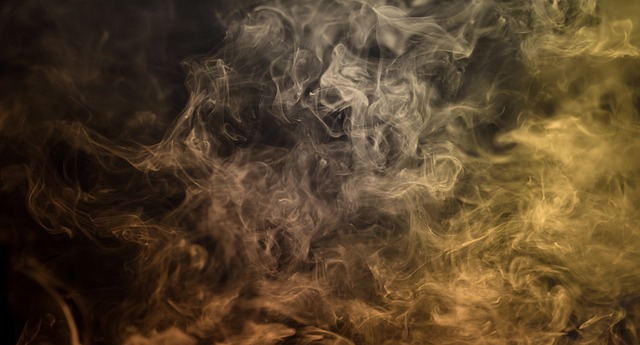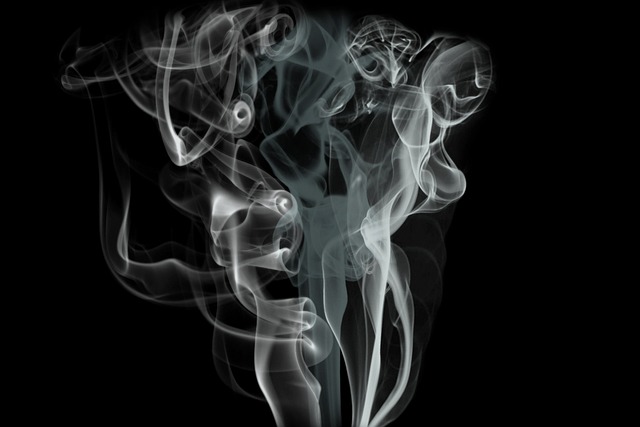Wisdom Teeth Recovery: Smoking and Healing
Wisdom teeth, the third molars that typically emerge in our late teens or early twenties, often bring a mixed bag of emotions for individuals. While some may anticipate the arrival of these teeth with excitement, others may dread the potential discomfort and hassle they can cause. Regardless of our outlook, one thing is certain – wisdom teeth recovery requires proper care and attention to ensure a smooth healing process. Today, we delve into an often debated topic: smoking during wisdom teeth recovery. In this article, we will explore the effects of smoking on the healing process and provide valuable insights for those seeking a knowledgeable and confident approach to their recovery.
1. Understanding the Impact of Smoking on Wisdom Teeth Recovery
Smoking can have a significant impact on the recovery process after wisdom teeth extraction. It is crucial to understand how smoking can affect the healing of the extraction site and what steps can be taken to ensure a smooth recovery.
Here are some important points to consider:
- Delayed healing: Smoking introduces harmful chemicals into the body, which can slow down the healing process. The nicotine in cigarettes restricts blood flow and reduces oxygen levels in the bloodstream, making it harder for the extraction site to heal properly.
- Increased risk of infection: Smoking weakens the immune system, making it more difficult for the body to fight off infections. This can increase the risk of developing an infection in the extraction site, leading to complications and delaying the healing process.
- Increased pain and discomfort: Smoking can irritate the extraction site, causing additional pain and discomfort. The heat and chemicals from smoking can also disrupt the blood clot that forms in the socket, leading to a condition called dry socket, which can be extremely painful.
To ensure a smooth wisdom teeth recovery, it is highly recommended to:
- Avoid smoking: Completely refrain from smoking for at least 72 hours after wisdom teeth extraction. Ideally, quitting smoking altogether during the recovery period is recommended to promote better healing.
- Maintain good oral hygiene: Brush your teeth gently and rinse your mouth with a saltwater solution after meals to keep the extraction site clean and free from bacteria.
- Follow post-operative instructions: Carefully follow the instructions provided by your oral surgeon or dentist. These instructions may include using ice packs, taking prescribed medications, and avoiding certain foods that can hinder the healing process.

2. Exploring the Healing Process of Wisdom Teeth Extraction
When it comes to wisdom teeth extraction, understanding the healing process is crucial for a smooth recovery. After the extraction, it is normal to experience some discomfort, swelling, and bleeding. However, following proper post-operative care instructions will help promote healing and minimize complications. Here are some important points to consider:
- Pain management: It is common to experience mild to moderate pain after the procedure. Your dentist or oral surgeon may prescribe pain medication or recommend over-the-counter options. Applying ice packs to the affected area can also help reduce swelling and discomfort.
- Wound care: Maintaining proper oral hygiene is essential for healing. Gently rinse your mouth with warm saltwater after meals to keep the extraction site clean. Avoid using mouthwash or touching the area with your tongue or fingers, as this may disrupt the healing process.
- Soft diet: Stick to a soft diet for the first few days following the extraction. Opt for foods like yogurt, mashed potatoes, smoothies, and soups. Avoid hard, crunchy, or spicy foods that could irritate the extraction site.
- Rest and relaxation: Adequate rest is crucial for a speedy recovery. Avoid strenuous activities and exercise for at least 48 hours after the procedure. Elevating your head while sleeping can help reduce swelling.
Remember, every individual’s healing process may vary slightly, and it is important to follow your dentist’s instructions and attend any follow-up appointments. By taking proper care of your oral health during the healing process, you can ensure a comfortable and successful recovery after wisdom teeth extraction.

3. The Potential Risks of Smoking during Wisdom Teeth Recovery
When it comes to smoking during wisdom teeth recovery, there are several potential risks that you should be aware of. Although it may be tempting to reach for a cigarette, it’s important to understand the potential consequences.
1. Delayed Healing: Smoking can significantly delay the healing process after wisdom teeth extraction. The chemicals in cigarettes restrict blood flow and oxygen supply to the surgical site, making it harder for the body to repair itself. This can result in a longer and more painful recovery period.
2. Increased Risk of Infection: Smoking compromises the immune system, making you more susceptible to infections. After wisdom teeth removal, there is an open wound in your mouth that is vulnerable to bacteria. Smoking introduces additional toxins and impairs the body’s ability to fight off infection, increasing the risk of complications.

4. Expert Recommendations: How to Optimize Healing after Wisdom Teeth Extraction
Recovery after wisdom teeth extraction is crucial for a smooth healing process. With the help of expert recommendations, you can ensure optimal healing and minimize discomfort. Here are some valuable tips to follow:
- Follow post-operative instructions: Your oral surgeon will provide you with specific instructions for aftercare. It is essential to follow them diligently to promote healing and prevent complications. These instructions may include guidelines on pain management, diet restrictions, oral hygiene, and medication usage.
- Manage pain and swelling: It is common to experience some discomfort after wisdom teeth extraction. Over-the-counter pain relievers, as recommended by your oral surgeon, can help alleviate pain. Applying an ice pack to the affected area in the initial 24 hours can also help reduce swelling.
- Take care of your oral hygiene: Keeping your mouth clean is vital for preventing infection. Gently brush your teeth, avoiding the surgical site, and rinse your mouth with warm saltwater several times a day. Be careful not to spit forcefully, as it may dislodge the blood clot.
Remember to avoid smoking, using straws, and consuming hard or sticky foods, as they can hinder the healing process and increase the risk of complications. By following these expert recommendations, you can optimize healing after wisdom teeth extraction and get back to your normal routine as quickly as possible.

5. Clearing the Air: Debunking Common Misconceptions about Smoking and Wisdom Teeth Recovery
When it comes to smoking and wisdom teeth recovery, there are several misconceptions that need to be debunked. Let’s set the record straight and clear the air on this important topic:
Myth 1: Smoking has no effect on wisdom teeth recovery.
- Contrary to popular belief, smoking can significantly affect the healing process after wisdom teeth extraction.
- The chemicals present in cigarettes can delay the formation of blood clots, leading to a higher risk of dry socket – a painful condition where the blood clot dislodges.
- Smoking also restricts blood flow, which is essential for proper healing. This can prolong the recovery period and increase the chances of complications.
Myth 2: Vaping is a safe alternative to smoking during wisdom teeth recovery.
- While vaping may be considered less harmful than traditional smoking, it is not without risks.
- The aerosol produced by e-cigarettes can still contain harmful chemicals and irritants that can hinder the healing process.
- Additionally, the act of inhaling and exhaling can create suction in the mouth, potentially dislodging blood clots and interfering with the formation of new tissue.
It is crucial to avoid smoking and vaping during the recovery period to ensure a smooth healing process. Consult your dentist or oral surgeon for further guidance and support.
6. Supporting Your Recovery Journey: Alternatives to Smoking during Wisdom Teeth Healing
After having your wisdom teeth removed, it’s crucial to prioritize your healing process to ensure a speedy recovery. One of the most important steps in this journey is to avoid smoking, as it can significantly impede the healing process and increase the risk of complications. However, we understand that quitting smoking can be challenging, especially during this time. Fortunately, there are several alternatives you can explore to satisfy your cravings while still supporting your recovery.
1. Nicotine patches or gum: These over-the-counter options provide a controlled dose of nicotine, helping to reduce withdrawal symptoms and cravings without the harmful effects of smoking. It’s important to follow the instructions carefully and consult with your healthcare provider if you have any concerns.
2. Herbal cigarettes: These are nicotine-free cigarettes made from various herbs. While they still involve inhaling smoke, they eliminate the harmful effects of nicotine. However, it’s worth noting that inhaling any kind of smoke can still irritate your healing gums, so it’s best to consult with your dentist before trying this option.
7. Prioritizing Your Health: Making Informed Choices for a Smooth Wisdom Teeth Recovery
Prioritizing your health during the recovery period after wisdom teeth extraction is crucial for a smooth and successful healing process. By making informed choices and following the right steps, you can ensure a comfortable recovery and minimize potential complications. Here are some essential tips to help you prioritize your health and make the best decisions for a speedy recovery:
1. Follow post-operative instructions: Your oral surgeon will provide you with specific guidelines to follow after your wisdom teeth removal. It is crucial to adhere to these instructions carefully to avoid any unnecessary discomfort or complications. These instructions may include avoiding certain foods, taking prescribed medications, and practicing proper oral hygiene.
2. Manage pain and swelling: It is common to experience pain and swelling after wisdom teeth extraction. To alleviate discomfort, your dentist may recommend over-the-counter pain relievers or prescribe medication. Applying an ice pack to the affected area can also help reduce swelling. Remember to follow the recommended dosage and consult your dentist if pain persists or worsens.
Frequently Asked Questions
Q: Can I smoke after getting my wisdom teeth removed?
A: It is strongly advised to avoid smoking after wisdom teeth removal to ensure a smooth and speedy recovery.
Q: Why is smoking harmful during the healing process?
A: Smoking can significantly impede the healing process of your wisdom teeth extraction by increasing the risk of complications and delaying the closure of the surgical site.
Q: What are the risks associated with smoking after wisdom teeth extraction?
A: Smoking after the removal of wisdom teeth can lead to various complications, including a dry socket, infection, delayed healing, and increased pain.
Q: What is a dry socket, and how does smoking contribute to its occurrence?
A: A dry socket is a painful condition that occurs when the blood clot, which forms in the surgical site, either dislodges or dissolves prematurely. Smoking can hinder the formation of a stable blood clot, leaving the extraction site vulnerable and increasing the chances of developing a dry socket.
Q: Can e-cigarettes or vaping be an alternative to smoking during wisdom teeth recovery?
A: No, e-cigarettes and vaping still pose a risk to your healing process. The nicotine and other harmful substances found in these products can hinder healing and increase the chances of complications.
Q: How long should I refrain from smoking after wisdom teeth removal?
A: It is recommended to abstain from smoking for at least 72 hours after wisdom teeth extraction. However, it is best to consult with your oral surgeon for specific instructions based on your individual case.
Q: What can I do to manage nicotine cravings during this period?
A: To manage nicotine cravings, consider using nicotine replacement therapy in consultation with your healthcare provider. This may include nicotine patches, gum, lozenges, or other approved methods that do not require inhalation.
Q: Are there any alternatives to smoking that I can consider during the healing process?
A: Yes, there are several alternatives to smoking that you can explore during your wisdom teeth recovery. These may include engaging in relaxation techniques, practicing deep breathing exercises, or finding other activities that can help distract you from the urge to smoke.
Q: When can I resume smoking without any risks to my healing process?
A: It is generally recommended to wait at least two weeks before resuming smoking after wisdom teeth extraction. However, it is crucial to consult with your oral surgeon to ensure proper healing has occurred before reintroducing smoking.
Q: What other factors can impact the healing process besides smoking?
A: Apart from smoking, factors such as maintaining good oral hygiene, following post-operative instructions, eating a soft diet, avoiding vigorous rinsing, and attending follow-up appointments are all essential for a successful and speedy recovery after wisdom teeth removal.
Insights and Conclusions
In conclusion, the recovery period after wisdom teeth extraction is a crucial time that requires careful attention and consideration. When it comes to smoking and healing, it is evident that smoking significantly hampers the healing process and increases the risk of complications. The chemicals in cigarettes can delay blood clotting, impair oxygen flow, and hinder the body’s ability to fight off infections. It is strongly advised to refrain from smoking for at least 72 hours after the surgery to ensure a smooth and successful recovery. Additionally, avoiding secondhand smoke and using nicotine alternatives can also contribute positively to the healing process. By prioritizing your oral health and making informed decisions, you can promote a speedy and complication-free recovery. Remember, your well-being is of utmost importance, and taking necessary precautions will allow you to achieve a swift and comfortable return to your daily routine.






